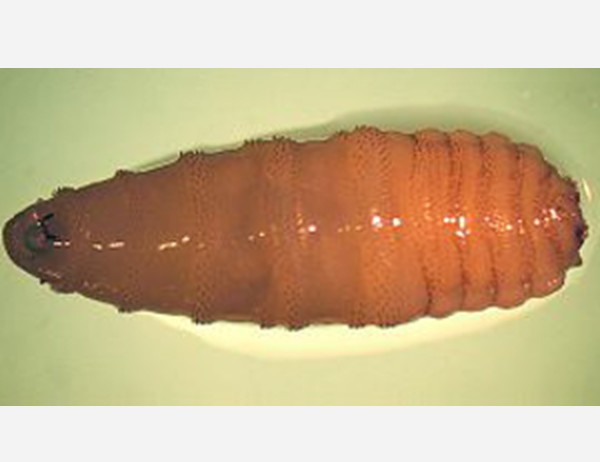BALTIMORE, MD—The Centers for Disease Control and Prevention (CDC) has confirmed the first human case of New World screwworm in the United States, a flesh-eating parasite previously thought to be eradicated in the country. The patient, a Maryland resident, was diagnosed on August 4 after returning from travel to El Salvador.
New World screwworm is a species of parasitic flies that can infest warm-blooded animals, including humans, with their larvae. These larvae feed on living tissue, a condition known as myiasis. While the parasite primarily affects livestock, it can cause severe pain and damage in humans.
According to the CDC, the risk to public health in the U.S. remains very low.
Symptoms and Prevention
Infestations are described as very painful and can result in maggots around or in open wounds, the nose, eyes, or mouth. Other symptoms include:
- Skin lesions or sores that do not heal or worsen over time.
- Bleeding from open sores.
- A foul-smelling odor from the site of the infestation.
- A feeling of larvae movement within a wound or sore.
The CDC emphasizes that prevention is key, especially for those traveling to areas where the screwworm is typically found, such as South America and the Caribbean. The agency recommends a series of preventative measures:
- Prevent insect bites by wearing long-sleeved shirts and pants.
- Keep open wounds clean and covered.
- Use an EPA-registered insect repellent.
- Treat clothing and gear with products containing 0.5% permethrin.
- Sleep indoors or in screened rooms.
Why It’s a Concern
While rare in humans, the parasite poses a significant threat to livestock and has a history of causing devastating losses in the cattle industry, according to Fox 5. The confirmation of a human case in Maryland has put the agricultural sector on high alert, even though no animal cases have been confirmed in the U.S. The USDA has launched a multi-pronged strategy, including a plan to build a sterile fly production facility in Texas, to combat the pest.
Photo via the Centers for Disease Control and Prevention


